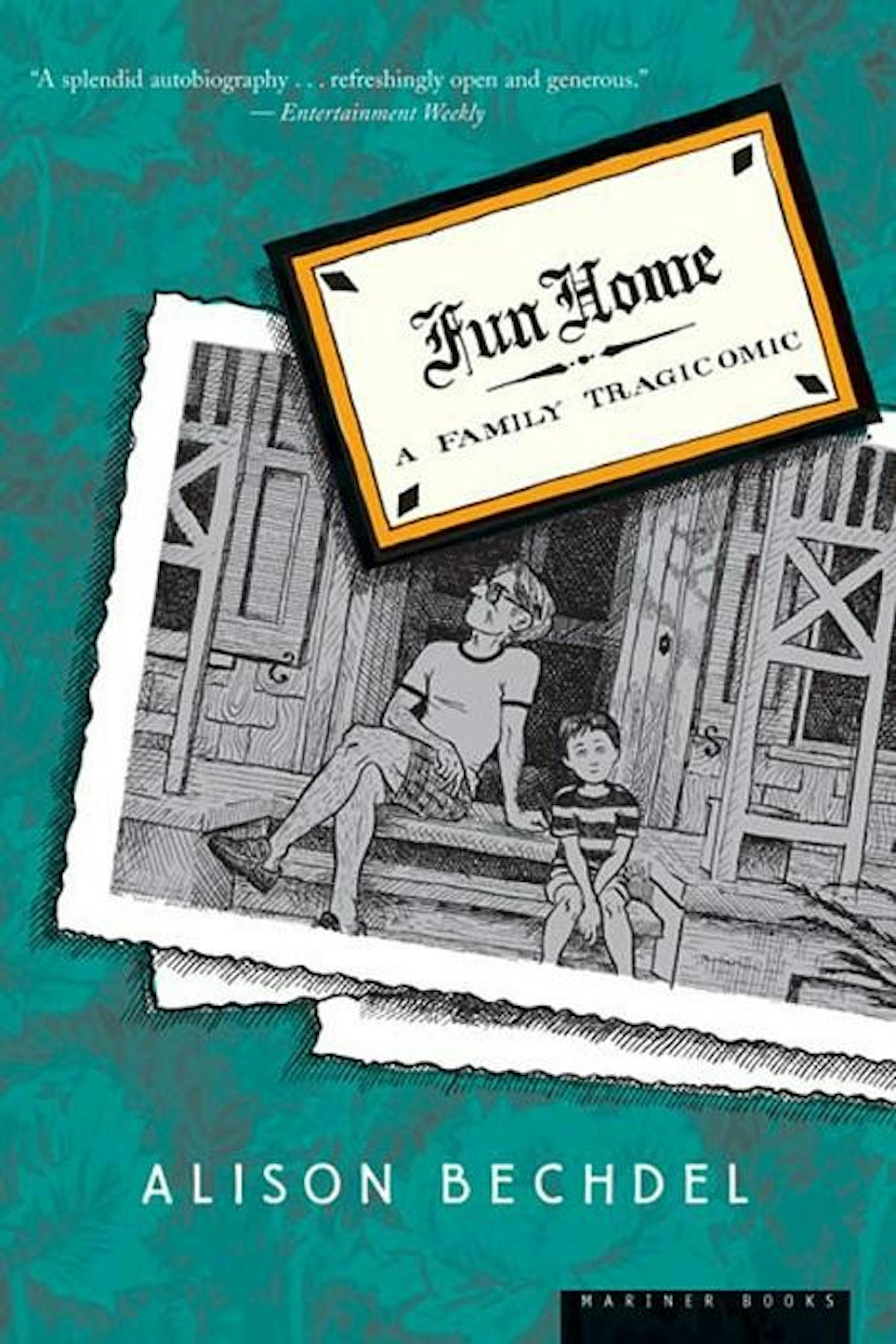Memoir gets a rebirth on the Broadway stage
Around this time four years ago, author Alison Bechdel was speaking to a room of incoming first-years about the orientation reading for that year, Fun Home (2006). Today, those first-years are college graduates, and Bechdel’s graphic novel has been translated into a musical and set on the Broadway stage, in the process garnering five Tony Awards.
Fun Home is an autobiographical memoir about the first 19 years of Bechdel’s life, told through comics and captions. The graphic novel follows the cartoonist through her difficult childhood and sexual awakening during her first year of college. Bechdel’s complex relationship with her father (Michael Cerveris) is at the forefront of the story—a relationship that becomes more complex when Alison comes out, and, at around the same time, learns that her father is gay as well.
So the musical is not your typical song-and-dance repertoire. But the cast, directed by Sam Gold, does it with grace and sincerity. The musical incorporates the idea of comics by using the adult Bechdel (Beth Malone)—as she was writing the graphic novel—as a guide for the audience. Malone narrates the story through verbal captions, introducing each one by saying, “caption.” Adult Alison takes the audience through place and time, switching between different moments in Alison’s childhood. During the play, three different Alisons take the stage, each representing a different period in her life: pre-teen Alison (Sydney Lucas) collegiate Alison (Emily Skeggs) and adult Alison (Malone).
The changes between moments in Alison’s life are seamless–due in part to the interchangeable set pieces, which lift up and down out of the stage floor, and the blocking, in which actors seem to fade in and out of scenes as if they were memories.
Twenty-seven songs make up the soundtrack to the show, a large number for a short play—the show clocks in at an hour and 40 minutes. Not all of the numbers are thoroughly satisfying, and a few would be better expressed in dialogue. There were a few songs that were home runs—“Come to the Fun Home,” “Ring of Keys,” the opening number and the finale are among the tunes that are melodically stimulating and catchy while substantial in their subject matter. The opening number, “It All Comes Back” and the finale, “Flying Away” mirror each other. In the beginnings of both, a pleading Alison calls her father to “play airplane” with her—a game where she lays flat atop her father’s raised feet as he lies on the floor. But it is in the finale that her plea’s full meaning becomes clear. “Daddy, hey daddy, come here. I need you,” Lucas sings in “Flying Away,” ending her song with the line “listen to me.” The songs and Lucas’ request encapsulate the fraught relationship with her father that defines Alison’s childhood and young adult life.
In “Come to the Fun Home,” young Alison (Lucas), along with her two younger brothers, Christian (Oscar Williams) and John (Zell Steele Morrow), practices an advertisement for their father’s funeral home. Lucas, Williams and Morrow imbue the song with the perfect combination of humor and irony. They advertise “smelling salts for if you’re queasy” and “ this is called an aneurysm hook”—lines that makes it clear just how strange it is that these children are living amid death and mourning in their everyday lives. The star of the number is Morrow, whose dramatic flare while singing his heart out atop a coffin is adorable yet humorously bizarre.
It is always incredible when you see young children in musical theater—children who not only act but can also sing. The child actors in Fun Home were especially impressive, given the gravity of the content they were dealing with. Even 11-year-old Lucas seems to realize the weight of her role. “Roles don’t come this deep,” she said in a New York Times interview on Feb.19. By the end of the show, moments across space and time came together to create a full picture of Alison and the first 19 years of her life. Fun Home proves that true-to-life and incredibly profound stories can be brought to life on the bright and flashy Broadway stage.




Please note All comments are eligible for publication in The Justice.